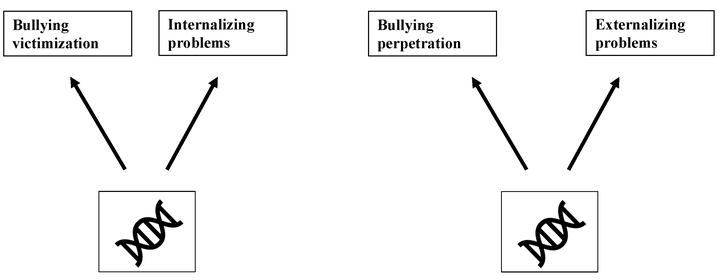
Abstract
Bullying research has shown repeatedly that victims of bullying have an increased risk for later internalizing problems and bullies have an increased risk for later externalizing problems. Bullying involvement is often, either explicitly or implicitly, presented as part of a causal mechanism for maladjustment. However, genetic vulnerability may confound the reported associations. This study examined to what extent genetic vulnerability can account for the reported associations between bullying involvement (age 11-14) and later internalizing and externalizing problems (age 16), using data from the TRacking Adolescents' Individual Lives Survey (n = 1604). Because polygenic scores capture only a fraction of the total genetic effect, they were extrapolated to the size of single-nucleotide polymorphism and twin heritability estimates to examine genetic confounding while controlling for (hypothetical) polygenic scores that fully capture the genetic effect. Genetic vulnerability for internalizing and externalizing problems confounded, respectively, the association between bullying victimization and later internalizing problems, and the association between bullying perpetration and later externalizing problems. As such, this study showcases a method that can be broadly used to assess the magnitude of genetic confounding. Caution is, however, warranted in interpreting particularly the less straightforward extrapolations of polygenic scores to the size of twin heritability estimates.